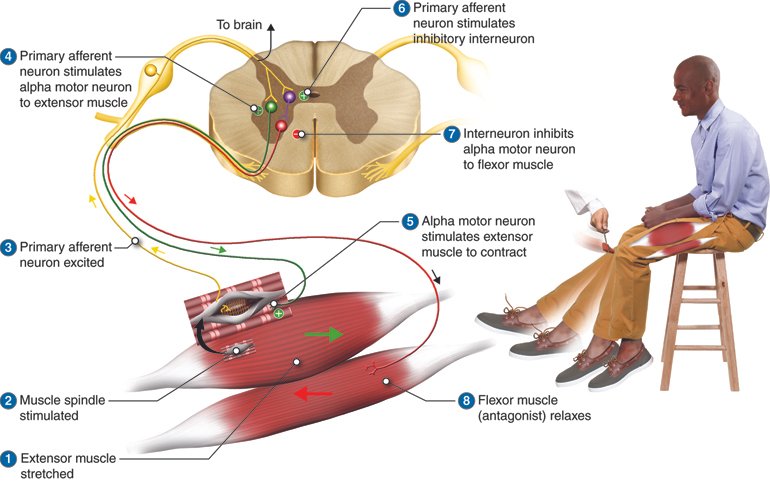When was the last time you truly indulged your senses? Picture this: sinking into a plush armchair, savoring the aroma of freshly brewed coffee, feeling the velvety texture of a cherished book’s pages beneath your fingertips, and listening to the soothing sound of raindrops dancing on the windowpane. In our fast-paced world, where we are constantly bombarded by external stimuli, it is vital to foster our sensory development through self-care. Engaging and nurturing our senses not only promotes relaxation and well-being but also enhances cognitive abilities, emotional intelligence, and overall quality of life. So, let us embark on a journey to explore the limitless benefits that self-care offers in expanding and refining our sensory experiences, unearthing a treasure trove of joy and mindfulness along the way.
Table of Contents
- Sensory Development and Self-Care: Nurturing the Senses for Wellbeing
- Enhancing Sensory Awareness: The Role of Self-Care Practices
- Unleashing Potential: How Self-Care Can Boost Sensory Development
- Creating an Enriched Environment: Practical Strategies for Supporting Sensory Growth
- Nurturing the Whole Self: Holistic Approaches to Sensory Development through Self-Care
- Q&A
- In Conclusion

Sensory Development and Self-Care: Nurturing the Senses for Wellbeing
Our senses play a vital role in our overall wellbeing. They shape our understanding of the world around us, allowing us to navigate through daily life. Sensory development not only impacts our cognitive functions but also influences our emotional and physical well-being. By engaging in activities that stimulate the senses, we can enhance our self-care practices and promote a greater sense of holistic wellness.
- Smell: Aromatherapy has long been known for its calming and mood-boosting effects. Experiment with essential oils such as lavender, eucalyptus, or citrus to create a soothing atmosphere.
- Sight: Surround yourself with beauty and calming visuals. Consider incorporating nature-inspired elements into your environment, such as houseplants or a serene painting, to create a visually pleasing space.
- Touch: Indulge in textures and tactile experiences that promote relaxation. Wrap yourself in a soft blanket, use a stress-relieving massage tool, or try out different fabrics to awaken your sense of touch.
- Taste: Mindful eating can be a powerful self-care tool. Slow down, savor each bite, and explore new flavors. Treat yourself to a nourishing, wholesome meal that satisfies not only your hunger but also your taste buds.
- Hearing: Sound therapy can be incredibly soothing. Explore calming music, nature sounds, or even a white noise machine to drown out distractions and create a peaceful auditory sanctuary.
Nurturing our senses through intentional practices can have a profound impact on our overall well-being. By incorporating sensory development into our self-care routines, we create opportunities for greater relaxation, mindfulness, and inner balance. Take the time to nurture your senses, and watch as your wellbeing flourishes.

Enhancing Sensory Awareness: The Role of Self-Care Practices
The role of self-care practices in enhancing sensory awareness cannot be underestimated. By taking the time to focus on our own well-being and self-care, we open the door to a deeper understanding and appreciation of our senses.
One effective self-care practice that can enhance sensory awareness is mindfulness meditation. By practicing mindfulness, we can train our minds to pay attention to our senses and fully experience the present moment. This can help us become more attuned to subtle sensations and nuances in our surroundings, allowing us to fully immerse ourselves in the sensory experience.
Another self-care practice that can enhance sensory awareness is spending time in nature. Nature has a way of stimulating all of our senses – the sight of vibrant colors, the sound of birds chirping, the smell of fresh air, the touch of grass beneath our feet, and the taste of wild berries. Immersing ourselves in nature can awaken our senses and provide us with a deeper connection to the world around us.
- Engaging in regular physical exercise is also a valuable self-care practice that can enhance sensory awareness. When we exercise, our senses become heightened as we become more in tune with our bodies. We can feel the rhythm of our breath, the strength of our muscles, and the sensation of our heart pumping.
- Practicing self-care also involves taking care of our mental and emotional well-being. Engaging in activities that bring us joy and relaxation, such as listening to music, reading a book, or spending time with loved ones, can nourish our senses and enhance our overall sensory awareness.
- Finally, incorporating healthy eating habits into our self-care routine can also play a role in enhancing sensory awareness. By consuming nutrient-rich foods, we can nourish our bodies and promote optimal functioning of our senses. Paying attention to the flavors, textures, and aromas of our meals can further heighten our sensory experience.
In conclusion, self-care practices play a crucial role in enhancing sensory awareness. By incorporating practices such as mindfulness meditation, spending time in nature, engaging in regular exercise, prioritizing mental and emotional well-being, and adopting healthy eating habits, we can cultivate a heightened awareness and appreciation of our senses.

Unleashing Potential: How Self-Care Can Boost Sensory Development
Discover the extraordinary impact of self-care on sensory development!
Self-care practices have long been associated with maintaining physical and mental well-being. However, their influence extends far beyond that. It is fascinating to explore the positive effects self-care has on an individual’s sensory development.
Sensory development, which encompasses the ability to process and interpret stimuli from the environment, is a crucial aspect of human growth. By incorporating self-care activities into your daily routine, you can unlock the potential for enhancing your sensory experiences.
Enhancing Sensory Awareness
Self-care activities such as meditation, deep breathing exercises, and practicing mindfulness can significantly enhance sensory awareness. Engaging in these practices allows individuals to tune into their senses, bringing focus and attention to the present moment. The heightened awareness that arises from self-care routines enables individuals to notice subtle sensory details that may have previously gone unnoticed.
Moreover, self-care practices can help regulate sensory responses, promoting calmness and reducing sensory overload. By adopting self-care as a regular habit, individuals can manage sensory sensitivities more effectively and navigate their surroundings with a heightened sense of control.
Unlocking Creativity Through Self-Care
Self-care not only nurtures sensory development but also has the power to unleash creativity. Engaging in creative self-care activities like painting, writing, or playing an instrument, stimulates the senses and encourages exploration and self-expression.
These activities provide an opportunity for individuals to engage all their senses in a unique and immersive way, amplifying sensory experiences. By allowing yourself the time and space for creative self-care, you create a fertile ground for imaginative thinking and innovative problem-solving.
Building Resilience and Emotional Well-being
Self-care empowers individuals to prioritize their well-being, fostering resilience and emotional stability. By attending to one’s physical, emotional, and psychological needs, individuals can better manage stress, anxiety, and other emotional challenges, ultimately uplifting their overall well-being.
Emotional well-being plays a crucial role in sensory development as it shapes our perception and interpretation of sensory stimuli. When we take care of our emotional health, we become more attuned to the world around us, opening our senses to new sensations and experiences.
Rediscover your potential by embracing self-care as a holistic approach to boost your sensory development. Explore a range of self-care practices that resonate with you, and embark on a transformative journey towards greater sensory awareness, creativity, and emotional well-being.

Creating an Enriched Environment: Practical Strategies for Supporting Sensory Growth
When it comes to supporting sensory growth in individuals, creating an enriched environment is a key factor. By providing stimulating experiences and opportunities, we can help develop and enhance the sensory systems of those we care for. Here are some practical strategies that can be implemented:
- Varied Textures: Incorporate a range of textures into the environment to stimulate tactile senses. Use soft fabrics, rough surfaces, or objects with different textures to encourage exploration and sensory development.
- Sensory Corners: Designate specific areas as sensory corners, where individuals can engage in activities that stimulate their senses. Include items like sensory bins filled with sand or water, textured objects, and calming visuals to create a soothing and interactive space.
- Music and Sound: Utilize music and sound to support auditory development. Play a diverse range of music styles, provide musical instruments, and encourage individuals to engage in singing or listening exercises. Ensure the environment has a quiet area for those who prefer minimal auditory stimulation.
Remember, each individual’s sensory needs may vary, so it’s essential to tailor the environment to their preferences. By implementing these practical strategies, we can create an enriched environment that promotes sensory growth and overall well-being.
Nurturing the Whole Self: Holistic Approaches to Sensory Development through Self-Care
When it comes to sensory development, taking a holistic approach ensures that we nurture every aspect of ourselves. Holistic approaches to sensory development not only focus on specific senses but also take into consideration the mind, body, and soul as interconnected entities.
Self-care plays a crucial role in this process, allowing individuals to tune in, engage, and elevate their sensory experiences. By taking the time to care for ourselves physically, mentally, and emotionally, we create a foundation for overall well-being. Here are some holistic practices that can enhance sensory development:
- Mindfulness meditation: Engaging in regular mindfulness meditation can help quiet the mind, reduce stress, and heighten sensory awareness. By grounding ourselves in the present moment, we open up space to fully experience our senses.
- Nourishing the body: Proper nutrition and hydration are essential for optimal sensory development. A diet rich in fruits, vegetables, whole grains, and lean proteins provides the necessary nutrients to support our senses.
- Exploring nature: Spending time in nature exposes us to a variety of sensory stimuli. Fresh air, the sound of birds chirping, the sensation of sand between our toes – all these experiences help activate our senses and enhance their development.
- Artistic expression: Engaging in creative activities such as painting, dancing, or playing an instrument stimulates our senses and fosters self-expression. These activities encourage us to explore and develop our unique sensory abilities.
By embracing holistic approaches to sensory development through self-care, we not only enhance our sensory experiences but also promote overall well-being. Our journey towards nurturing the whole self begins by acknowledging the interconnected nature of our senses and taking intentional steps to care for ourselves on all levels.
Q&A
Why is self-care important for sensory development?
Self-care is important for sensory development because it allows individuals to become more aware of their own needs and preferences. Engaging in activities such as sensory play or relaxation techniques can help stimulate and regulate the senses, leading to improved sensory processing skills.
How does self-care impact sensory integration?
Self-care activities provide opportunities to engage and stimulate the different sensory systems in the body. By actively exploring different textures, smells, sounds, and movements, individuals can improve their sensory integration abilities and enhance their overall sensory processing skills.
What are some examples of self-care activities that benefit sensory development?
Examples of self-care activities that benefit sensory development include practicing deep breathing exercises, engaging in sensory play with various textures and materials, participating in activities that involve proprioceptive input (such as yoga or jumping on a trampoline), and incorporating calming rituals into daily routines.
Can self-care help individuals with sensory processing disorders?
Yes, self-care can be particularly beneficial for individuals with sensory processing disorders. Engaging in self-care activities can provide them with opportunities to regulate and organize their sensory experiences, promoting improved self-regulation and reducing sensory overload.
Are there any long-term benefits of incorporating self-care into sensory development?
Incorporating self-care into sensory development can have long-term benefits. It can help individuals become more self-aware, develop better coping strategies for sensory challenges, and improve their overall well-being. Additionally, building a strong foundation of self-care skills early on can positively impact their abilities to navigate and thrive in different environments throughout their lives.
How can self-care be integrated into daily routines for sensory development?
Self-care can be easily integrated into daily routines for sensory development by allocating dedicated time for activities that engage and stimulate the senses. This can include incorporating sensory breaks throughout the day, creating sensory-friendly spaces at home or school, practicing mindfulness exercises, and encouraging individuals to engage in activities they find enjoyable and calming.
In Conclusion
In the symphony of life, where our senses dance to the rhythm of existence, self-care emerges as the melodic orchestration that harmonizes our sensory development. As we bid adieu to this exploration of the benefits of self-care, we are reminded of the delicate intricacies that enhance our connection to the world around us.
Like a tender breeze weaving through our fingertips, self-care nurtures our sense of touch, allowing us to comprehend the subtleties that tenderly caress our skin. Through gentle massages, warm baths, or even the simple act of indulging in a favorite texture, we awaken this sensation, unveiling its hidden depths and fostering an intimate bond with ourselves and the universe.
In the vast canvas of life, self-care splashes vibrant hues into our visual symphony, enhancing our sense of sight. Through moments of mindfulness and deliberate observation, we unlock the gateways to colors unseen, shapes unimagined, and landscapes unfathomable. As we marvel at nature’s artistry and lose ourselves in captivating scenes, our sensory development blossoms, allowing us to appreciate the intricate tapestry of existence.
The mellifluous melodies of our universe unfold through the enchantment of self-care, enriching our sense of hearing. By immersing ourselves in soul-stirring melodies, striving for moments of silence, or engaging in gentle conversations, we become attuned to the subtle nuances of sound. The rhythm of our heartbeat blends seamlessly with the world’s symphony, fostering a profound connection that can only be nurtured by self-care.
Finally, self-care serves as the tantalizing aroma that embellishes our sense of smell. As we savor fragrant perfumes, aromatic teas, or the evocative scents of nature, our olfactory senses awaken, leading us towards a deeper understanding of the world. In these moments of self-indulgence, we unlock the gates to nostalgia, awakening memories long forgotten and forging new pathways for sensory exploration.
As we embark on our journey towards a more enriched sensory existence, let us not overlook the transformative power of self-care. In honoring ourselves, we unlock the potential for an expanded consciousness, fostering harmony between our senses and the captivating world that surrounds us. So, let us bid farewell to this exploration, armed with the knowledge that self-care holds the magical key to unlocking the symphony of our sensory development.
As an affiliate, my content may feature links to products I personally use and recommend. By taking action, like subscribing or making a purchase, you’ll be supporting my work and fueling my taco cravings at the same time. Win-win, right?
Want to read more? Check out our Affiliate Disclosure page.